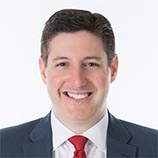Fourth District Reverses Trial Court for Dismissing Prospective Jurors Based on Written Answers Without Allowing Oral Questioning to Rehabilitate
November 2, 2020 by boydjenerette on News
The Fourth District Court of Appeal issued an opinion holding that the trial court erred by excluding eight prospective jurors based solely on their written juror questionnaire responses without first allowing counsel to question the jurors on impartiality.
In Frogel v. Philip Morris USA, Inc., 45 Fla. L. Weekly D2436a (Fla. 4th DCA, Oct. 28, 2020), the personal representative of the estate a decedent brought a tobacco products liability action. The trial court granted Defendant’s request to dismiss eight of the 189 prospective jurors based on their answers to written juror questionnaires. The questions at issue asked if the prospective jurors heard or read anything regarding actions taken against the tobacco industry. The responses were all strongly anti-tobacco. The defense argued these answers reflected the jurors could not be impartial.
Plaintiff’s counsel moved to question the jurors, which was denied based on the trial court’s belief that the jurors could not be rehabilitated. Plaintiff also objected and moved to strike the panel before the jury was sworn. Plaintiff then moved for a new trial, which was also denied.
The appellate court held that the trial court erred in not allowing counsel for the Plaintiff to orally question the subject jurors in an attempt to rehabilitate them and show the jurors could be impartial. The appellate court concluded that questionnaire answers did not establish it was “conclusively clear” that the jurors could not be impartial. It reaffirmed that the “right of the parties to conduct a reasonable examination of each juror orally must be preserved” under Florida Rule of Civil Procedure 1.431. It also reiterated that “the failure to allow counsel to inquire into a prospective juror’s potential biases amounts to an abuse of discretion warranting reversal unless it becomes conclusively clear to the court after questioning, that there was no reasonable basis to anticipate that the juror could return a verdict against the defendant.” A questionnaire is not “a substitute for oral examination.”
The answers to the questionnaires were so anti-tobacco (e.g., “They [tobacco companies] don’t tell the truth, even under oath & CEO’s too” and “I believe the tobacco companies knew the dangers of what smoking could do to people and felt money + profit were more important”) that it is hard to imagine any answers to questionnaires being deemed “conclusively clear” in terms of impartiality. As such, the ability to rehabilitate a potentially impartial juror through oral questioning should always be requested. In the event it is denied, to preserve the issue for appeal, it is necessary to object to the panel and move to strike the panel before the jury is sworn. It is then necessary to move for a new trial after the verdict is returned to preserve the issue on appeal.
If you have any questions about this case or would like to refer an appellate matter, please contact our appellate attorneys.
Kevin D. Franz
Partner
Direct: 954.622.0093
Email: kfranz@boydjen.com
About Kevin D. Franz:
Kevin Franz is part of the firm’s Appellate Practice division. He has received the Martindale-Hubbell AV Preeminent® Peer Review Rating and has more than 10 years of experience handling all types of civil appellate proceedings. Mr. Franz has handled appeals and petitions in all five District Courts of Appeal for the State of Florida and the Supreme Court of Florida, argued before all five District Courts of Appeal, and handled appeals in the U.S. Court of Appeals for the Eleventh Circuit.
Mr. Franz also has extensive experience in litigating and arbitrating maritime law disputes involving the cruise line industry under both the U.S. General Maritime Law and Bahamian Law.
He received his B.S. from the University of Maryland at College Park in 2001, and his J.D. from the University of Miami School of Law in 2005. He then clerked for the Honorable E. Allen Shepherd in the Circuit Court for Prince George’s County, Maryland before beginning his career in insurance defense with an emphasis on litigation support and appellate practice.
Mr. Franz is admitted to practice in Florida, the three U.S. District Courts located in Florida, and the U.S. Court of Appeals for the Eleventh Circuit. He currently serves as a member of The Florida Bar’s Professional Ethics Committee, where his term runs through June 30, 2021.

